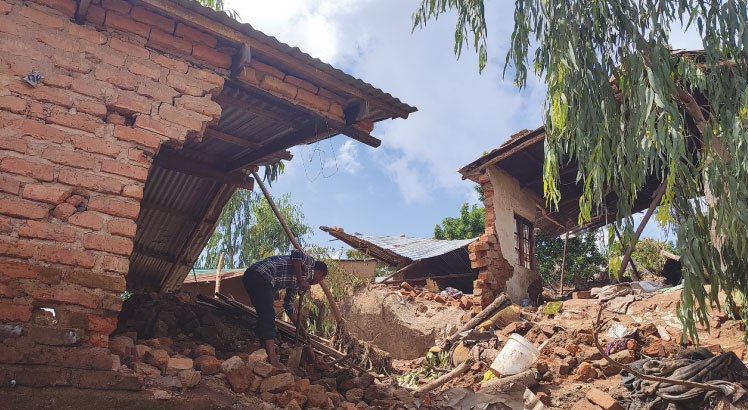Reclaiming the lost glory of Chawa Forest
 Lke most communities in Malawi, villagers surrounding Chawa Forest Reserve in the area of T/A Simulemba in Kasungu pounced on the forest reserve, felling trees and replacing them with settlements and gardens. But the story is different now.
Lke most communities in Malawi, villagers surrounding Chawa Forest Reserve in the area of T/A Simulemba in Kasungu pounced on the forest reserve, felling trees and replacing them with settlements and gardens. But the story is different now.
Group Village Head Jumbo of the area recalls that over 120 households had found refuge in the forest since 1997.
“We had to strategise how to vacate the people from the reserve because most of them encroached on the land due to pressure in their home districts,” he says.
Jumbo says most encroachers had come from neighbouring districts of Dowa, Ntchisi and Lilongwe, among others.
Efforts to restore the lost glory of Chawa Forest Reserve started in 2006, following the introduction of the Improved Forestry Management for Sustainable Livelihoods Programme by the district office.
The European Union-funded programme has seen communities forming committees to look after the forest reserve and vacate encroachers.
“Negotiation was the only weapon that was used until the last encroacher moved out from the reserve,” says Harry Chalira, Kasungu district assistant forestry officer.
To ensure better management, the forest reserve is divided in three blocks of Mthira, Muwamba and Kasambankhole. Each block has a committee and is responsible for its portion in the forest for management.
“For example, Mthira block covers 95.5 hectares and over 130 villagers from Makwenje, Chiwinga, Kantipwiri, Alesi and Kanthambani villages. Muwamba block is looked after by communities from Chimphako, Siliuka and Chafuta. It covers 235.88 hectares while Kasambankholi covers 135 hectares under Julius, Jumbo and Timbe villages.”
Chairperson for Mthira Club, Colonia Chunga says each of the committees manages its block through patrols and making of firebreaks to protect the reserve from the wrath of fire.
Says Chunga: “Through the programme, communities were trained to co-manage the forest with government in an attempt to find better ways of vacating the encroachers from the reserve to pave the way for regeneration.”
Chairperson for Muwamba block, Elias Nkhoma, says the communities are now trained in the benefits of managing forests.
“As compared to the past, villagers can now find different types of mushrooms in Chawa forests because it is regenerating. We also get traditional medicine from the reserve,” he says.
The people agreed with government to co-manage the reserve and share the benefits proportionally. Sixty percent of the proceeds go to the community, 30 percent to government and 10 percent is for local forestry management board.
District forestry officer Emily Gondwe says if all forest reserves were co-managed with communities and government, environmental degradation would minimise and thereby mitigating the impact of climate change.





